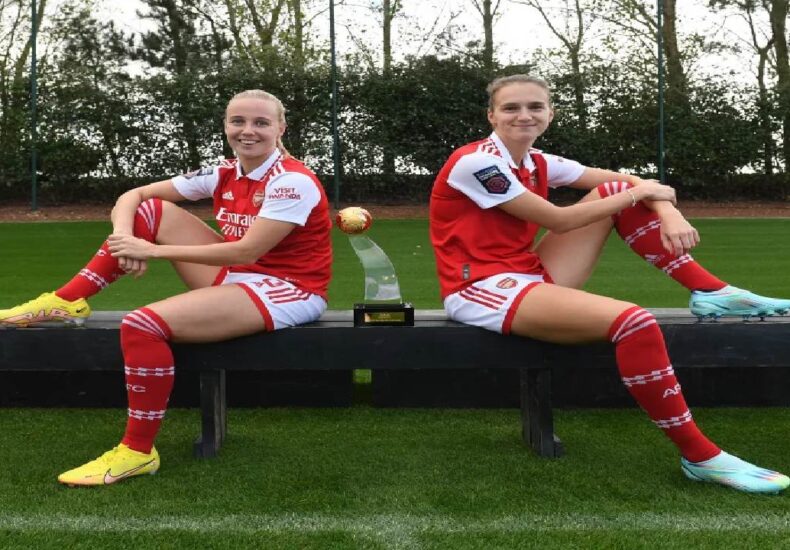
Why Women’s Soccer Is So Important to Queer People
Fundacion Rapala – Women’s soccer has become a vital home for many queer people because it offers a rare mix of joy, acceptance, and visibility. At inclusive events like Ball Together Now in Manchester, queer fans gather with ease and comfort. Pride flags wave freely. Fans cheer without fear. Players and supporters share the same open space, and that creates an emotional bond. For many LGBTQ+ people who grew up without safe places, this atmosphere feels life-changing. It shows them that they can be part of a wider community that celebrates identity, not suppresses it. In these moments, women’s soccer becomes more than a sport it becomes a place where people can truly belong.
Why Festivals Like Ball Together Now Feel Revolutionary
Ball Together Now shows how deeply queer culture connects with women’s soccer. At first glance, it is a simple weekend festival. But the energy inside tells another story. Fans dress as beloved queer icons. Teams wear jerseys with Pride colors. People dance, talk, and laugh without judgment. These gatherings create a space where queer people can relax and let their guard down. Many attendees call it the best weekend of their year because it feels freeing and human. For some, it is the first time they see so many queer people in one joyful setting. That emotional release makes this festival feel revolutionary.
“Read More : Texans Shock Bills with Statement Win in Brutal Thursday Night Battle”
Why the Women’s Game Feels Safer Than the Men’s
Queer fans often choose the women’s game because the environment feels safer and more open. Matches attract many LGBTQ+ supporters, and queer couples hold hands in the stands without fear. This comfort comes from both the culture around the sport and the players themselves. Many female players are openly queer, which helps normalize LGBTQ+ visibility. In contrast, men’s soccer still struggles with homophobia and rigid expectations. The difference is striking. When fans witness warmth and acceptance at women’s matches, they naturally gravitate toward that space. The women’s game shows what soccer can feel like when kindness, not hostility, shapes the atmosphere.
Role Models Who Inspire Queer Fans Around the World
LGBTQ+ athletes give queer fans powerful representation on and off the field. Stars like Megan Rapinoe, Beth Mead, and Vivianne Miedema live openly and confidently. Their presence sends a strong message: queer people can thrive in sports. Fans often share how meaningful it feels to see their identities reflected by top athletes. These players show authenticity, courage, and pride all qualities that resonate deeply with queer audiences. When over 20% of players at major tournaments are openly queer, it creates a strong sense of community. Representation like this helps young fans feel seen and valued.
“Read More : Francesco Bagnaia Crashes Out at MotoGP Portugal What Triggered It?”
A Rare Place of Belonging as Queer Nightlife Shrinks
Across the UK and many countries, queer bars and venues continue to close. Fewer physical spaces remain where LGBTQ+ people can meet, socialize, and feel at ease. Women’s soccer helps fill that gap. Supporter groups host screenings, parties, and community events. Stadiums become weekly meeting spots for queer fans who may not enjoy nightlife or drinking. This creates an important “third space,” a place outside home and work where community grows naturally. For many queer people, women’s soccer offers comfort, connection, and belonging at a time when safe queer spaces are disappearing.
How Women’s Soccer Has Become a Form of Resistance
Women’s soccer has a long history of pushing against social pressure and discrimination. The sport faced bans and restrictions for decades, which forced women to build their own communities. That spirit of resistance resonates deeply with queer people. It mirrors their own fight for rights and recognition. Players like Megan Rapinoe turned their platform into activism. Her decision to challenge political power inspired many queer fans. Queer supporters often say that the women’s game feels bold, unapologetic, and proud qualities that make them feel at home. In this way, the sport becomes more than entertainment. It becomes a symbol of strength.
Why the Future of the Women’s Game Matters to Queer Fans
As women’s soccer grows in popularity, its emotional impact grows too. More fans fill stadiums. More leagues invest in players. Visibility reaches new heights. Queer supporters hope the sport keeps its inclusive heart even as it evolves. New queer-led fan groups and player activism show that the connection between the game and the LGBTQ+ community remains strong. For many, women’s soccer represents safety, joy, and freedom. It offers a place where identity is welcome and celebrated. That is why the future of the women’s game matters so deeply to queer fans everywhere.